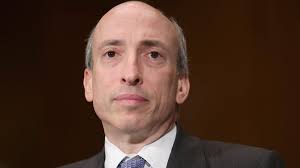A leaked memo reveals that US Democrats are secretly pushing their agenda to bring the crypto industry under their full control.
The party leadership’s memo titled “key messages” instructs Democratic committee members to follow the agenda for the House Financial Services Committee hearing on digital assets held on May 10.
The memo makes it clear that U.S. Democrats want to regulate the industry under the supervision of SEC Chairman Gary Gensler.
According to the memo, Republicans claim they want to provide clarity in the markets by giving the CFTC space for cryptocurrencies but are “undermining” the agency by proposing to cut its budget. In contrast, Committee Republicans plan to pass crypto-friendly legislation before the end of June.
The memo directs Democratic committee members to praise Gensler for “building the strongest enforcement team yet” to “crackdown on crypto criminals and protect investors and consumers from harm.” The SEC must continue to lead the regulation of the US crypto market.
Further, the memo denies a “turf war” because “no one is fighting.” The SEC determines whether cryptocurrencies are securities, and the CFTC agrees with the SEC.
The memo states that regulatory ambiguity is not the problem, “but rather mass non-compliance with existing laws,” adding: “We cannot invent new, accommodating regulatory structures simply because crypto companies refuse to play by clear rules.”
As US Democrats push for the regulation of the crypto industry, US Republicans defend the industry. The Republicans are demanding that Gensler release internal documents and communications with Sam Bankman-Fried.
Republicans believe Gensler has failed to live up to the regulator’s duties while politicizing an agency that is supposed to protect investors from scammers.



